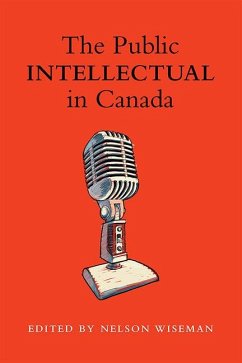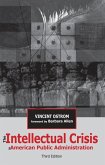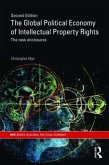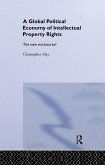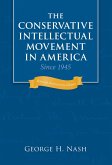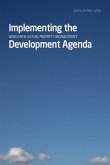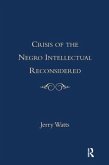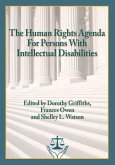Nelson Wiseman
The Public intellectual in Canada
Nelson Wiseman
The Public intellectual in Canada
- Broschiertes Buch
- Merkliste
- Auf die Merkliste
- Bewerten Bewerten
- Teilen
- Produkt teilen
- Produkterinnerung
- Produkterinnerung
Broad in scope and stylistically diverse, these essays offer a fascinating overview of the links between thought, public exposition, and action in the fields of politics, science, and culture.
Andere Kunden interessierten sich auch für
![The Intellectual Crisis in American Public Administration The Intellectual Crisis in American Public Administration]() Vincent OstromThe Intellectual Crisis in American Public Administration23,99 €
Vincent OstromThe Intellectual Crisis in American Public Administration23,99 €![The Global Political Economy of Intellectual Property Rights, 2nd ed The Global Political Economy of Intellectual Property Rights, 2nd ed]() Christopher MayThe Global Political Economy of Intellectual Property Rights, 2nd ed73,99 €
Christopher MayThe Global Political Economy of Intellectual Property Rights, 2nd ed73,99 €![The Global Political Economy of Intellectual Property Rights The Global Political Economy of Intellectual Property Rights]() Christopher MayThe Global Political Economy of Intellectual Property Rights65,99 €
Christopher MayThe Global Political Economy of Intellectual Property Rights65,99 €![The Conservative Intellectual Movement in America Since 1945 The Conservative Intellectual Movement in America Since 1945]() George H NashThe Conservative Intellectual Movement in America Since 194526,99 €
George H NashThe Conservative Intellectual Movement in America Since 194526,99 €![Implementing the World Intellectual Property Organizationas Development Agenda Implementing the World Intellectual Property Organizationas Development Agenda]() Implementing the World Intellectual Property Organizationas Development Agenda48,99 €
Implementing the World Intellectual Property Organizationas Development Agenda48,99 €![The Crisis of the Negro Intellectual Reconsidered The Crisis of the Negro Intellectual Reconsidered]() The Crisis of the Negro Intellectual Reconsidered70,99 €
The Crisis of the Negro Intellectual Reconsidered70,99 €![The Human Rights Agenda for Persons with Intellectual Disabilities The Human Rights Agenda for Persons with Intellectual Disabilities]() The Human Rights Agenda for Persons with Intellectual Disabilities65,99 €
The Human Rights Agenda for Persons with Intellectual Disabilities65,99 €-
-
-
Broad in scope and stylistically diverse, these essays offer a fascinating overview of the links between thought, public exposition, and action in the fields of politics, science, and culture.
Hinweis: Dieser Artikel kann nur an eine deutsche Lieferadresse ausgeliefert werden.
Hinweis: Dieser Artikel kann nur an eine deutsche Lieferadresse ausgeliefert werden.
Produktdetails
- Produktdetails
- Verlag: University of Toronto Press
- Seitenzahl: 264
- Erscheinungstermin: 14. Juni 2013
- Englisch
- Abmessung: 226mm x 152mm x 15mm
- Gewicht: 386g
- ISBN-13: 9781442613393
- ISBN-10: 1442613394
- Artikelnr.: 36955571
- Herstellerkennzeichnung
- Libri GmbH
- Europaallee 1
- 36244 Bad Hersfeld
- 06621 890
- Verlag: University of Toronto Press
- Seitenzahl: 264
- Erscheinungstermin: 14. Juni 2013
- Englisch
- Abmessung: 226mm x 152mm x 15mm
- Gewicht: 386g
- ISBN-13: 9781442613393
- ISBN-10: 1442613394
- Artikelnr.: 36955571
- Herstellerkennzeichnung
- Libri GmbH
- Europaallee 1
- 36244 Bad Hersfeld
- 06621 890
Nelson Wiseman is a professor emeritus of political science at the University of Toronto.
Introduction - Nelson Wiseman (University of Toronto)
Part I: What Are Public Intellectuals For?
1. The Public Intellectual and the Democratic Conversation - Janice
Gross Stein (University of Toronto)
2. The Public Intellectual and Politics: Why Choices Matter - Hugh Segal
(Chair of the Special Senate Committee on Anti-Terrorism)
3. 3. Public Thought and the Crisis of Underpopulation - Doug Saunders (
Globe and Mail’s European Bureau Chief)
4. What Are Intellectuals For? A Modest Proposal in Dialogue Form -
Mark Kingwell (University of Toronto)
Part II: Who Are They?
1. Public Intellectuals in Twentieth-Century Canada - Nelson Wiseman
2. Le Devoir, Forum for the Exchange of Ideas - Gregory Baum (University of
Toronto, McGill University)
3. Quebec Public Intellectuals in Times of Crisis - Alain-G. Gagnon
(Université du Québec à Montréal)
4. Navigating Gendered Spaces: Women as Public Intellectuals - Sylvia
Bashevkin (University of Toronto)
Part III: On the Front Lines
5. A Political Scientist in Public Affairs - Tom Flanagan (University of
Calgary)
6. Personal Success vs. Public Failure: The Muting of Canada's Academic
Intellectuals - Stephen Clarkson (University of Toronto)
7. Polling for Democracy - Michael Adams (Marketing Research and Intelligence
Association)
8. A People’s Intellectual - Maude Barlow (Council of Canadians, Blue Planet
Project)
9. Canadian Economists as Public Intellectuals - Pierre Fortin (Royal Society
of Canada, Canadian Institute for Advanced Research)
10. The Unbalanced Discussion of Aboriginal Policy - John Richards (Simon
Fraser University)
11. “Brave New Ethicists”: A Cautionary Tale - Margaret Somerville (McGill
Centre for Medicine, Ethics and Law)
Conclusion - Nelson Wiseman (University of Toronto)
Contributors
Part I: What Are Public Intellectuals For?
1. The Public Intellectual and the Democratic Conversation - Janice
Gross Stein (University of Toronto)
2. The Public Intellectual and Politics: Why Choices Matter - Hugh Segal
(Chair of the Special Senate Committee on Anti-Terrorism)
3. 3. Public Thought and the Crisis of Underpopulation - Doug Saunders (
Globe and Mail’s European Bureau Chief)
4. What Are Intellectuals For? A Modest Proposal in Dialogue Form -
Mark Kingwell (University of Toronto)
Part II: Who Are They?
1. Public Intellectuals in Twentieth-Century Canada - Nelson Wiseman
2. Le Devoir, Forum for the Exchange of Ideas - Gregory Baum (University of
Toronto, McGill University)
3. Quebec Public Intellectuals in Times of Crisis - Alain-G. Gagnon
(Université du Québec à Montréal)
4. Navigating Gendered Spaces: Women as Public Intellectuals - Sylvia
Bashevkin (University of Toronto)
Part III: On the Front Lines
5. A Political Scientist in Public Affairs - Tom Flanagan (University of
Calgary)
6. Personal Success vs. Public Failure: The Muting of Canada's Academic
Intellectuals - Stephen Clarkson (University of Toronto)
7. Polling for Democracy - Michael Adams (Marketing Research and Intelligence
Association)
8. A People’s Intellectual - Maude Barlow (Council of Canadians, Blue Planet
Project)
9. Canadian Economists as Public Intellectuals - Pierre Fortin (Royal Society
of Canada, Canadian Institute for Advanced Research)
10. The Unbalanced Discussion of Aboriginal Policy - John Richards (Simon
Fraser University)
11. “Brave New Ethicists”: A Cautionary Tale - Margaret Somerville (McGill
Centre for Medicine, Ethics and Law)
Conclusion - Nelson Wiseman (University of Toronto)
Contributors
Introduction - Nelson Wiseman (University of Toronto)
Part I: What Are Public Intellectuals For?
1. The Public Intellectual and the Democratic Conversation - Janice
Gross Stein (University of Toronto)
2. The Public Intellectual and Politics: Why Choices Matter - Hugh Segal
(Chair of the Special Senate Committee on Anti-Terrorism)
3. 3. Public Thought and the Crisis of Underpopulation - Doug Saunders (
Globe and Mail’s European Bureau Chief)
4. What Are Intellectuals For? A Modest Proposal in Dialogue Form -
Mark Kingwell (University of Toronto)
Part II: Who Are They?
1. Public Intellectuals in Twentieth-Century Canada - Nelson Wiseman
2. Le Devoir, Forum for the Exchange of Ideas - Gregory Baum (University of
Toronto, McGill University)
3. Quebec Public Intellectuals in Times of Crisis - Alain-G. Gagnon
(Université du Québec à Montréal)
4. Navigating Gendered Spaces: Women as Public Intellectuals - Sylvia
Bashevkin (University of Toronto)
Part III: On the Front Lines
5. A Political Scientist in Public Affairs - Tom Flanagan (University of
Calgary)
6. Personal Success vs. Public Failure: The Muting of Canada's Academic
Intellectuals - Stephen Clarkson (University of Toronto)
7. Polling for Democracy - Michael Adams (Marketing Research and Intelligence
Association)
8. A People’s Intellectual - Maude Barlow (Council of Canadians, Blue Planet
Project)
9. Canadian Economists as Public Intellectuals - Pierre Fortin (Royal Society
of Canada, Canadian Institute for Advanced Research)
10. The Unbalanced Discussion of Aboriginal Policy - John Richards (Simon
Fraser University)
11. “Brave New Ethicists”: A Cautionary Tale - Margaret Somerville (McGill
Centre for Medicine, Ethics and Law)
Conclusion - Nelson Wiseman (University of Toronto)
Contributors
Part I: What Are Public Intellectuals For?
1. The Public Intellectual and the Democratic Conversation - Janice
Gross Stein (University of Toronto)
2. The Public Intellectual and Politics: Why Choices Matter - Hugh Segal
(Chair of the Special Senate Committee on Anti-Terrorism)
3. 3. Public Thought and the Crisis of Underpopulation - Doug Saunders (
Globe and Mail’s European Bureau Chief)
4. What Are Intellectuals For? A Modest Proposal in Dialogue Form -
Mark Kingwell (University of Toronto)
Part II: Who Are They?
1. Public Intellectuals in Twentieth-Century Canada - Nelson Wiseman
2. Le Devoir, Forum for the Exchange of Ideas - Gregory Baum (University of
Toronto, McGill University)
3. Quebec Public Intellectuals in Times of Crisis - Alain-G. Gagnon
(Université du Québec à Montréal)
4. Navigating Gendered Spaces: Women as Public Intellectuals - Sylvia
Bashevkin (University of Toronto)
Part III: On the Front Lines
5. A Political Scientist in Public Affairs - Tom Flanagan (University of
Calgary)
6. Personal Success vs. Public Failure: The Muting of Canada's Academic
Intellectuals - Stephen Clarkson (University of Toronto)
7. Polling for Democracy - Michael Adams (Marketing Research and Intelligence
Association)
8. A People’s Intellectual - Maude Barlow (Council of Canadians, Blue Planet
Project)
9. Canadian Economists as Public Intellectuals - Pierre Fortin (Royal Society
of Canada, Canadian Institute for Advanced Research)
10. The Unbalanced Discussion of Aboriginal Policy - John Richards (Simon
Fraser University)
11. “Brave New Ethicists”: A Cautionary Tale - Margaret Somerville (McGill
Centre for Medicine, Ethics and Law)
Conclusion - Nelson Wiseman (University of Toronto)
Contributors

